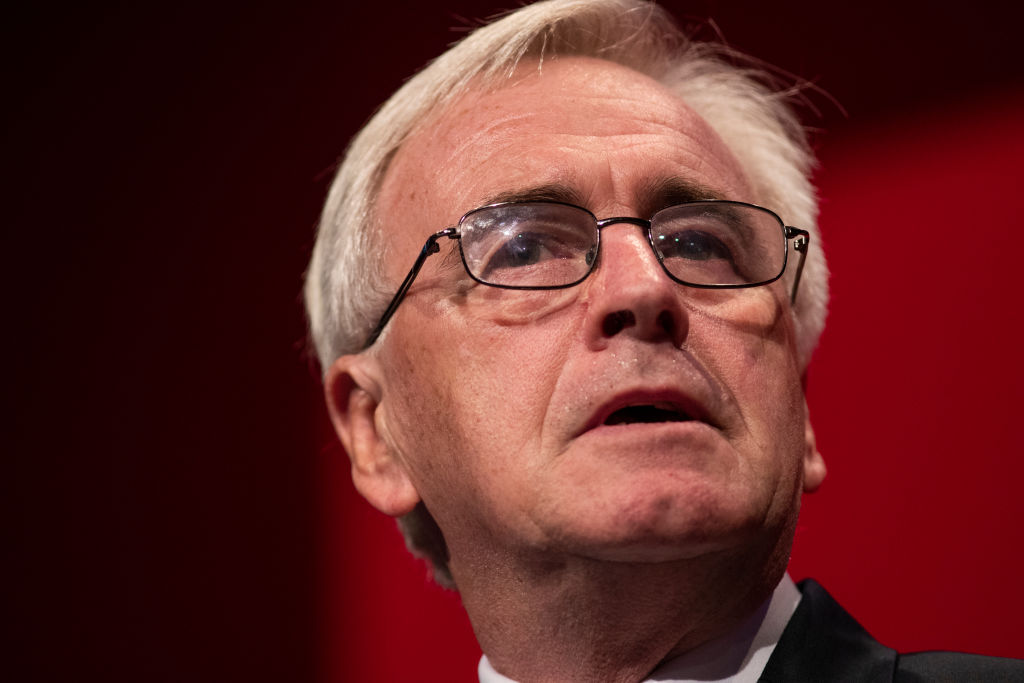Amid the headline-grabbing antics of the Prime Minister this week, some stories coming out of Labour party conference got buried. The most significant of these was shadow chancellor John McDonnell’s surprising promotion of idling. McDonnell said that a 32 hour working week should become the norm in ten years and that we should “work to live, not live to work”. In heralding the joys of doing nothing in particular, he has resurrected a forgotten tradition in the socialist movement.
McDonnell’s praise of idleness comes as a welcome rejoinder to the assumption that hard toil is at the centre of life. We all remember David Cameron’s praise of “hard-working families”. This is a uniquely miserable vision of who should be most valued in society. But it also comes as a welcome rebuke to lefty ideology which has also, in general, promoted the Protestant work ethic.
On the left, there have been plenty of fans of hard, unremitting toil. Take the puritanical Gordon Brown, son of a Presbyterian preacher. He would have been the first to take down the maypoles and ban Christmas during the Reformation. He was anti-fun and against smiling. I remember a Daily Mail front page in the noughties, reporting new measures to crack down on so-called dole cheats. There was a caricature of the dour Scot wearing a black hat alongside the headline “Puritan Brown Wages War on the Workshy”.
Lenin, too, was an anti-idler and raged against “Oblomovism” – a reference to the novelist Ivan Goncharov’s literary slacker anti-hero in the delightful novel of the same name. Lying around doing nothing, Lenin felt, was a disease of the degenerate aristocracy, rather than the highest form of living, which Socrates believed.
“There was a character who typified Russian life, Oblomov,” wrote Lenin in 1922. “He was always lolling on his bed and mentally drawing up schemes…. the Oblomovs have survived..and for a long while yet Oblomov will have to be washed, cleaned, shaken and thrashed if something is to come of him.”
But there is also a distinguished pro-leisure tradition coming from the left. This is shown most obviously by the rise of the unions in the 19th century and the various campaigns for a shorter working day, which started with The Ten Hours Act of 1847. This limited the work of women and 13 to 18 year olds in textile mills to ten hours a day on weekdays and and a mere eight hours on Saturday. It was one of the first successful attacks on laissez-faire government. Previously the mill owners had been allowed to get away with working their factory hands to death.
Towards the end of the 19th century, we have the example William Morris who made a sincere attempt to save the world with wallpaper. He believed that men had been reduced to automatons by the Industrial Revolution and memorably described the London Underground as a “stinking vapour bath of hurried and discontented humanity.” He wanted people to enjoy work and have plenty of holidays.
In the thirties, both Bertrand Russell and John Maynard Keynes argued that a sane, rational and progressive society would gradually shorten the working day to something like three or four hours.
So why has this not happened, with all our wonderful technology? Russell’s 1932 essay “In Praise of Idleness” argued that the ruling classes are generally against free time:
‘The idea that the poor should have leisure has always been shocking to the rich. In England, in the early nineteenth century, fifteen hours was the ordinary day’s work for a man; children sometimes did as much, and very commonly did twelve hours a day. When meddlesome busybodies suggested that perhaps these hours were rather long, they were told that work kept adults from drink and children from mischief.’
Such is the attitude still maintained by the Priti Patels of this world. The Home Secretary is the co-author (with three other cabinet members) of a depressing 2012 book called Britannia Unchained. In this stern anti-idling manifesto, the authors railed against the loafers of Britain:
“The British are among the worst idlers in the world. We work among the lowest hours, we retire early and our productivity is poor. Whereas Indian children aspire to be doctors or businessmen, the British are more interested in football and pop music.”
Surely McDonnell’s is the more progressive and civilised attitude?
Tom Hodgkinson is editor of the Idler






Comments